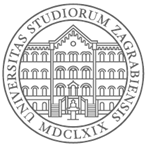Laboratory activities span from pragmatic research to theory, from experimentation to prototype development, and from technology transfer to knowledge exchange. We are researching basic architectural elements of consumer computing systems and are exploring processes involved in creating a productive consumer computing environment. Such processes include guidance in application development where AI assistance is offered to encourage consumer’s creativity, recommendation of application development decisions inferred from collected knowledge, knowledge collection by application of crowdsourcing and collective intelligence, integration of software and social technology within the application development environment, introduction of social computing into consumer computing, and abstraction of hardware and software fragmentation.
The laboratory is open for collaboration with universities and companies worldwide. We hope to successfully initiate and participate in building a global Consumer Computing R&D Network. Our collaboration efforts span different interests: prototype development, experimentation, and theoretical research. Therefore, we aspire to establish partnership relations nationally and internationally to join research efforts with academic institutions and explore possibilities of prototype utilization within industry. Long-term research goals of creating a productive consumer application development environment dictate strong interdisciplinary research exchange in techniques, tools, perspectives, concepts, and theories from a variety of academic disciplines including formal, social and natural sciences, as well as humanities.
Since consumer computing has still not gained wide attention as a scientific discipline, Consumer Computing Laboratory also promotes the field in academia, industry, and the general public. Through aggregation of relevant articles and news, and through publishing in journals and conferences, members of CCL try to raise awareness of the importance of consumer computing. Additionally, a range of new questions related to consumer computing will be presented in forthcoming PhD theses of our graduate students.



